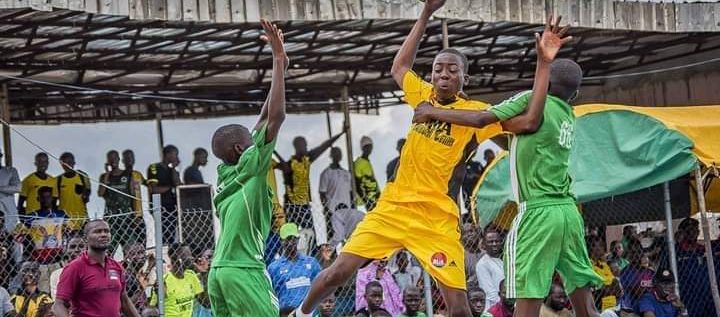Nigerian Sport – Never Been This Bad

![]()
By Segun Odegbami
These are very dreary times for Nigerian sports.
For those of us that have been a part of several generations, the pain is deep.
I was an active participant at the highest level from the mid 1970s when Nigerian sports were on a global ascendancy, when Nigeria started an authentic dominance of Africa in Track and Field, table tennis, (lawn) tennis, boxing, weightlifting and wrestling, joined the elite forces in African football at the African Cup of Nations in Dire Dawa, and went to the Montreal Olympic games with some of the best athletes in the world in different events and sports (in Track and Field, and amateur boxing) with realistic chances of carting away some medals.
It is very painful to wake up every week these days, particularly as I write my column, to the reality of the horror that has become the present state of Nigerian sports.
Take this past week for example.
Nigerian athletes just returned from the World Relays in Japan. The event was the qualifying meet for the 2020 in Tokyo, Japan.
The Technical Director of the Athletics Federation of Nigeria, AFN, who was with the contingent reported that they were humiliated by the organisers through the poor treatment meted openly only to the Nigerian team. He described the reception as ‘third class’, and the major cause of the team’s woeful performance and failure to record even a single win.
Unlike all the other teams, Nigeria was taken very far away from the venue and the centre of activities, and accommodated in a very low class hotel.
But why?
The belief now is that it has to do with the two-year old tiff between the IAAF and the AFN reported in several social media platforms.
The reports say that two years ago the AFN was erroneously paid $150,000 instead of $20,000 as its annual grant by the IAAF. Since then it has failed to refund the excess of $130,000.
The AFN has not reacted to the allegation, neither explaining what happened to the money, nor refunding it.
According to a letter making the social media round, even a pledge to repay given by the sports minister of Nigeria some months ago in Asaba, Nigeria, was not redeemed. Meanwhile, the man may soon be on his way out of the sports ministry.
Nigerian athletes may, indeed, have had to pay the price for administrative indiscretion, punished for the AFN’s ineptitude.
A big question menacingly hangs in the air: ‘what happened to the funds’?
No one is accepting responsibility, and no one is providing an answer.
So, Nigeria, with her innocent athletes, suffer.
This past week, the same international body, the IAAF, de-listed Asaba as host of the African Athletics Track and Field championship because of the shambolic arrangements, the poor state of equipment and facilities, and the technical deficiencies observed glaringly during the competition.
All the results recorded at the event have been cancelled, a total waste of time, effort, and resources. It is a terrible advertisement for Nigeria.
With the 2020 Olympic Games just around the corner not much is happening to reassure Nigerians of a possible good outing for the country.
This was a country that used to be a part of the final lineups in the sprints, jumps, sprint relays, boxing, and even football at several Olympics.
From 1976 to 2006, a period of some 30 years and eight different Olympics, Nigeria presented some athletes that were either winning medals or had the capability to do so. From 1984 Nigeria actually started to win Olympic medals. In 1996 it won an unprecedented number including its first, two Gold medals.
Since then her fortune in medals has been dwindling.
How did Nigeria descend into this very sorry pass?
For those of us that have been a part of the history of Nigerian sports since 1976 the present times are the undoubted worst in our country’s history with stories so ugly they benumb the mind.
For the 2003 All African Games hosted in Abuja, Nigeria started to build Africa’s best and most modern Doping Test Centre. 16 years since the event ended the centre is unfinished, its carcass abandoned, with all the resources spent on it going down the drain in a colossal waste. No one is held to account for what happened.
In that same year, Nigerian administrators hired ‘mercenary’ athletes to represent some African countries, in specially identified uncommon sports, to compete against Nigeria as a grand strategy to boost Nigeria’s medal haul.
The mission was that the country would top the medals table in the continent. The country did, people were rewarded and the country celebrated a scam.
For several years now, the country has failed to organize a proper national sports festival, an event designed and started in 1973 to unite the youths of the country through healthy social interaction and sports competition, whilst identifying and developing the best among them discovered during the games.
The last one that held in December 2018 in Abuja may go down in the history of the country as the worst sports event ever hosted as a result of its meaninglessness and remote distance from the objectives for which the festival was established in the first place.
It is imperative to call for a total review of the vision, aims and objectives of the sports festival that have been distorted through time, with little or nothing derived from it any more.
The ultimate shame of Nigerian sports is the condition of her heroes.
In the past one month, the cases of Christian Chukwu and Peter Fregene, two football giants in Nigeria’s history, have gone viral on social media. They have attracted global attention to the plight of former international sports heroes across all sports in the country.
Their pictures have been of pathetic, depicting a nation totally unmoved by the plight of its greatest ambassadors – sports heroes!
That’s where we are now in sport.
It needs an injection of new ideas and of a new kind of leadership to rise above the present plateau. And with all the ills bedeviling sport, what is also needed now is a new understanding so that it can occupy its rightful place in government. That way its awesome power can be deployed to make meaningful contribution to the country’s development.
Sport needs the right institution and the right leadership to steer it.
To be specific: the National Sports Commission, independent of the Ministry of Sports, should make a final come back in this new dispensation. It should have a board of members fulfilling all political and technical righteousness. It should be guided by a person that is versed, qualified and very experienced in the business of sports.
President Muhammed Buhari must rethink his government’s attitude to sport. He must set aside politics, ethnicity, religion and the Ministry of Sports, and immediately sign into law the NSC act still incubating in the National Assembly.
The new NSC should have a board of sports technocrats representing different stakeholders and interests related to sport, with a clear, simple and practical mandate to take Nigerian sports, within a very short time, to the pinnacle.
The present state of things presents Nigeria the opportunity to change the face and fate of sports for good, forever.




